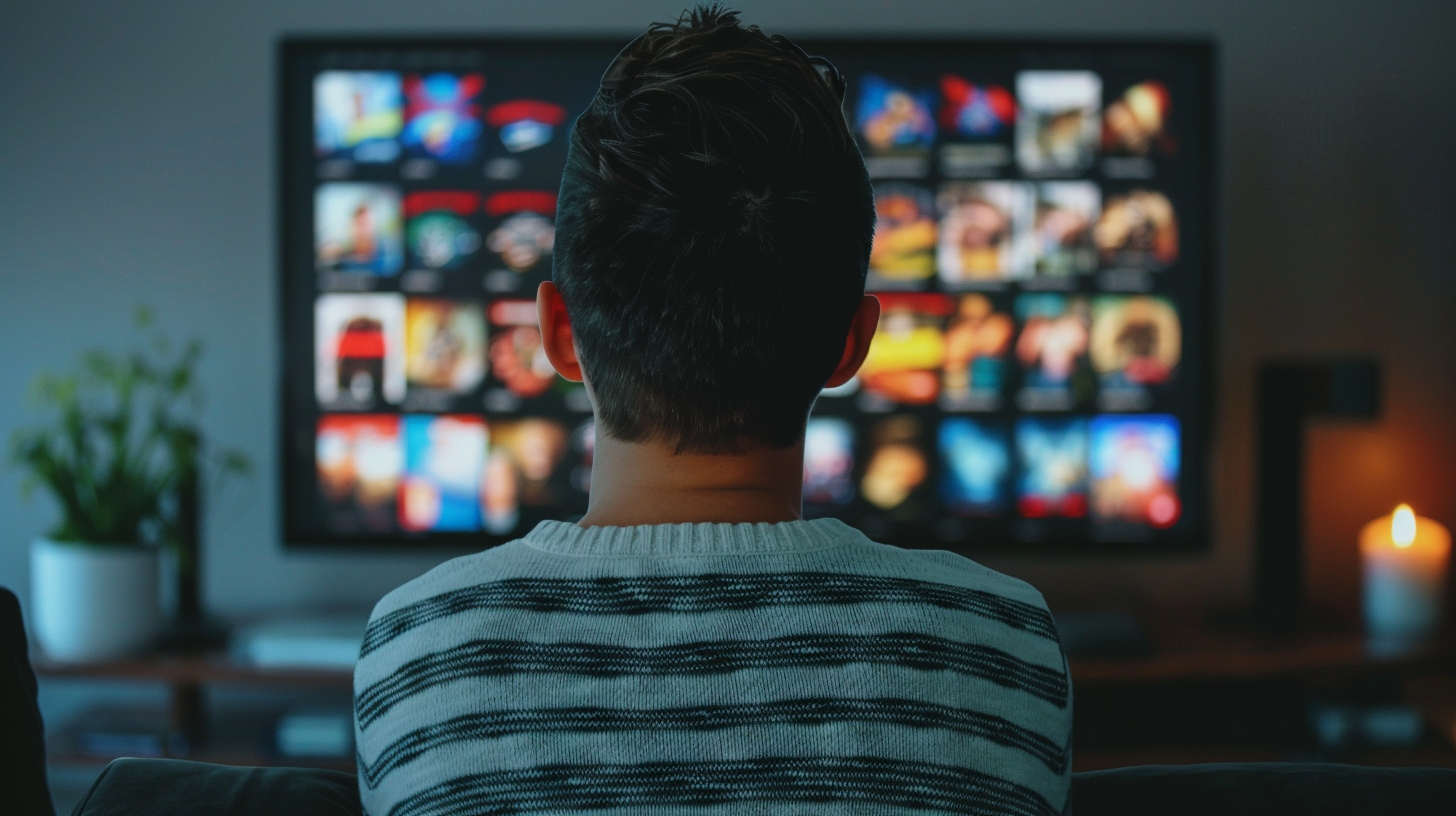Table of Contents Show
There may be products. Products are independently selected by our editors. We may earn an affiliate commission from the links with no charge to you, example: as Amazon Affiliate.
Multitasking may seem like a productivity hack, but in reality, it can hinder focus, decrease efficiency, and elevate stress levels significantly. The negative impacts of multitasking include cognitive overload, reduced productivity, and burnout. By focusing on single-tasking and embracing mindful work practices, one can improve efficiency, work quality, and overall well-being. Embracing strategies such as time blocking and setting clear objectives for each task can lead to enhanced productivity and sustained focus. Keep exploring to unlock the full insights on cultivating focus in a distracted world.
Key Takeaways
- Multitasking decreases productivity and increases stress levels.
- Cognitive overload from multitasking hinders memory and productivity.
- Distractions impede focus, efficiency, and work quality.
- Burnout, reduced cognitive abilities, and mental health issues can result from multitasking.
- Focus and deep engagement foster innovation and improve decision-making abilities.
Multitasking Myth
Falling into the trap of multitasking can lead to decreased productivity and increased stress levels. As someone who values efficiency and creativity, I’ve come to realize that attempting to juggle multiple tasks simultaneously only hinders my ability to innovate effectively. Innovation thrives in an environment of focus and deep engagement with the task at hand. When our attention is divided, we lose the opportunity to delve deeply into a problem or idea, limiting our potential for groundbreaking solutions.
In today’s fast-paced world, the allure of multitasking may seem enticing, promising a way to accomplish more in less time. However, this promise often falls short, leaving us feeling overwhelmed and unfulfilled. By embracing a more mindful approach to work, I’ve discovered that I can achieve greater results with less strain. Immersing myself fully in one task at a time allows me to tap into my creative reserves and produce work that isn’t only of higher quality but also completed more efficiently.
Let’s break free from the multitasking myth and pave the way for true innovation through focused and deliberate action.
Cognitive Overload
I struggle with multitasking because my brain can’t keep up with the demands, leading to cognitive overload.
This overload negatively impacts my memory, making it harder to retain important information.
As a result, my productivity levels decrease, and I find it harder to focus on any one task effectively.
Brain Struggles With Multitasking
Juggling multiple tasks simultaneously can overwhelm the brain, leading to cognitive overload. Our brains are incredible organs, capable of processing vast amounts of information. However, when we attempt to multitask, we push our cognitive limits to the edge. This overload can cause a decrease in performance, lapses in attention, and an overall reduction in efficiency.
Imagine your brain as a high-speed processor – trying to run too many programs at once can cause it to slow down or even crash. By focusing on one task at a time, we allow our brains to allocate resources effectively, leading to improved productivity and innovation.
Embracing a more mindful approach to work not only reduces cognitive strain but also cultivates a deeper sense of creativity and clarity.
Impact on Memory
Experiencing cognitive overload due to multitasking can significantly impact memory retention and recall abilities. When our brains are pulled in different directions simultaneously, our memory functions can suffer, leading to difficulties in storing and retrieving information.
In a world that values efficiency and productivity, this hindered memory can impede our ability to learn and adapt quickly. To address this issue, innovative solutions are needed to enhance memory performance in multitasking scenarios:
- Implementing mindfulness techniques to improve focus and memory consolidation.
- Utilizing memory training apps and tools to enhance retention capabilities.
- Designing workspace environments that minimize distractions and support memory encoding processes.
Decreased Productivity Levels
Amidst the demands of multitasking, productivity levels often take a hit due to cognitive overload. When we juggle multiple tasks simultaneously, our brains struggle to keep up, leading to decreased efficiency and performance.
The brain expends energy switching between tasks, causing delays and errors that hinder progress. This cognitive overload not only diminishes our ability to focus but also impairs our decision-making skills. As a result, the quality of work diminishes, and tasks may take longer to complete than if done sequentially.
Productivity Pitfalls
I find that distractions can seriously impact my focus and hinder my productivity.
By focusing on single-tasking rather than trying to juggle multiple tasks at once, I’ve noticed a significant improvement in my efficiency and the quality of my work.
Embracing a more mindful approach to work has allowed me to fully immerse myself in tasks and achieve better results.
Distractions Impact on Focus
One may find it challenging to maintain focus in the presence of distractions, leading to decreased productivity. Distractions can significantly impact our ability to concentrate on tasks and hinder our overall output. To combat this, it’s essential to understand the negative effects distractions have on our focus and productivity.
- Constant notifications interrupt the flow of work, causing frequent context switching.
- Background noise can disrupt cognitive processes and diminish the quality of work.
- Multitasking, often mistaken for efficiency, can actually reduce productivity by spreading focus too thin.
Benefits of Single-Tasking
The advantages of focusing on one task at a time become evident when considering the pitfalls of trying to multitask. By dedicating your attention solely to one activity, you enhance productivity, quality, and efficiency. Here’s a comparison between single-tasking and multitasking:
| Single-Tasking | Multitasking |
|---|---|
| Deep focus on one task | Divided attention |
| Higher quality results | Increased errors and oversights |
| Improved efficiency | Longer completion times |
Choosing to single-task allows for a deeper level of immersion in the task at hand, leading to better outcomes and a more satisfying work experience. Embracing single-tasking is a step towards achieving your goals with precision and innovation.
Impact on Well-being
Constantly juggling multiple tasks can significantly impact mental health and overall well-being. The modern world bombards us with a constant stream of information and demands, making it tempting to multitask. However, this habit can take a toll on our well-being in various ways:
-
Increased stress levels: Multitasking often leads to feelings of being overwhelmed, which can elevate stress levels and contribute to burnout.
-
Reduced cognitive abilities: Splitting our focus between multiple tasks diminishes our cognitive performance, leading to decreased productivity and lower quality of work.
-
Impaired decision-making: Multitasking can hinder our ability to make well-thought-out decisions by preventing us from fully concentrating on the factors at play.
Focus Vs. Distraction
Navigating between focus and distraction can be a challenging balancing act in a world filled with constant demands and stimuli. As an innovator seeking to thrive in this dynamic landscape, I’ve come to realize that honing my ability to concentrate is key to unlocking creative solutions. Distractions lurk at every corner, tempting us to veer off course, but mastering the art of focus is what sets groundbreaking ideas apart from mediocrity.
Innovation thrives in the realm of undivided attention. When we immerse ourselves fully in a task, shutting out the noise of competing stimuli, our minds can delve deeper, connecting dots that seemed unrelated at first glance. Distraction, on the other hand, fragments our focus, hindering the flow of ideas and stunting potential breakthroughs.
To excel in a world clamoring for our attention, we must embrace focus as a prized asset, guarding it fiercely against the onslaught of distractions. By prioritizing deep work and cultivating a mindful approach to our tasks, we pave the way for innovation to flourish in a distracted world.
Mindful Work Practices
Embracing mindfulness in daily work routines enhances productivity and fosters a deeper connection to the tasks at hand. By incorporating mindful work practices into our daily routines, we can unlock our full potential and achieve greater success.
Here are three key strategies that can help cultivate mindfulness in the workplace:
-
Meditation Sessions: Taking short breaks throughout the day to engage in mindfulness meditation can help clear the mind, improve focus, and reduce stress levels.
-
Intention Setting: Starting each workday with a clear intention in mind can provide a roadmap for the day’s tasks and help maintain focus and direction.
-
Mindful Listening: Actively listening to colleagues during meetings or discussions without distractions can enhance communication, improve relationships, and lead to more effective collaboration.
Strategies for Single-tasking
In today’s fast-paced work environment, mastering the art of single-tasking is crucial for maximizing productivity and focus. To excel in single-tasking, I prioritize setting clear objectives for each task, allowing me to fully immerse myself in one activity at a time. By eliminating distractions and creating a conducive work environment, I can dedicate my full attention to the task at hand, leading to higher quality outputs and increased efficiency.
Another effective strategy I employ is time blocking. By allocating specific time slots for different tasks and focusing solely on one task during each block, I can maintain a high level of concentration and prevent the urge to multitask. This approach not only enhances my productivity but also helps me better manage my time and deadlines.
Furthermore, practicing mindfulness during work hours enables me to stay present and fully engage with the task I’m working on. Taking short breaks between tasks to reset my mind and energy levels is also essential for sustaining focus throughout the day. By implementing these strategies, I continuously improve my single-tasking skills and achieve optimal results in today’s dynamic work landscape.
Frequently Asked Questions
How Can Multitasking Affect Our Long-Term Memory Retention?
Multitasking can disrupt our long-term memory retention by dividing our attention and preventing deep encoding of information. This leads to shallower memory traces, making it harder to recall details accurately in the future.
What Are Some Common Misconceptions About Multitasking That People Often Believe?
I used to think multitasking made me efficient, but it’s a myth. People believe it helps save time, but it actually slows us down and lowers the quality of our work. It’s time to focus.
How Does Cognitive Overload Impact Our Ability to Make Decisions?
Cognitive overload hampers decision-making by clouding clarity and amplifying distractions. It diminishes focus, leading to rushed judgments and errors. To combat this, I prioritize tasks, minimize interruptions, and practice mindfulness to enhance decision-making abilities.
Can Multitasking Actually Make Us Less Productive in the Long Run?
Multitasking appears efficient, but it actually hinders long-term productivity. I’ve experienced this firsthand – focus on one task at a time boosts my output and quality. Innovation thrives when attention is undivided.
How Can Practicing Mindfulness Help Improve Our Focus and Concentration at Work?
Practicing mindfulness boosts focus and productivity. By engaging fully in tasks, distractions diminish, enhancing work quality. A study found that mindfulness can improve focus by 47%. It’s a game-changer in today’s fast-paced world.
Conclusion
So next time you’re tempted to multitask, remember: you wouldn’t try to drive, text, and eat a burrito all at the same time, would you? Treat your focus like your precious burrito – savor it, give it your full attention, and enjoy the benefits of single-tasking.
The myth of multitasking may be tempting, but the reality is clear: focus is the key to success. Stay focused, my friends.









